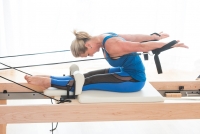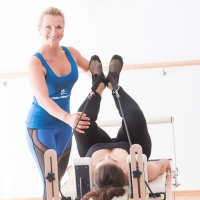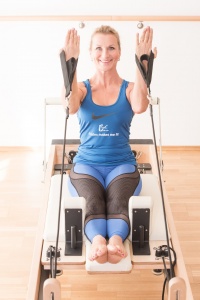Cancer patients who exercise regularly while undergoing adjuvant therapy appear to be more physically active years after their treatment ends. In addition, in cancer patients who participated in an exercise program during therapy, there was a tendency toward less fatigue over both the short and long term, according to new findings.
"The take-home message is that offering exercise during cancer treatment is recommended and has beneficial short- and long-term health effects," said lead author Anne M. May, PhD, an associate professor of epidemiology at the University Medical Center in Utrecht, the Netherlands.
She was speaking at a press briefing held in advance of the upcoming Cancer Survivorship Symposium (CSS) Advancing Care and Research, in Orlando, Florida, where the results will be presented.
May noted that this study is the first to show that patients who are physically active during cancer treatment maintain higher levels of physical activity over the long term, which is highly beneficial for their health and well-being.
She explained that these results come from the long-term follow-up of the PACT trial, a Dutch study that investigated whether exercise during chemotherapy can reduce treatment-related side effects, including cancer-related fatigue.
"Cancer-related fatigue is one of the most distressing side effect of treatment," said May, "and it can persist for many years after treatment. That is the reason why we studied whether exercise for people during treatment with chemotherapy would prevent patients from developing severe fatigue."
Study Details
The PACT study was a two-armed, multicenter randomized controlled trial that compared an 18-week supervised exercise program to usual care among 204 breast cancer patients and 33 colon cancer patients who were undergoing adjuvant treatment, including chemotherapy.
Patients were randomly assigned to receive either usual care or a supervised exercise intervention that included 60 minutes of combined moderate- to high-intensity aerobic and strength training twice a week, plus 30 minutes of home-based physical activity 3 days a week.
The team previously reported short-term benefit from the exercise program, noting that patients in the intervention arm experienced less fatigue than those in the usual-care arm (BMC Medicine. 2015;13:121).
Now, the team reports results from the 4-year follow-up.
A total of 128 patients were included in the follow-up (intervention, n = 70; usual care, n = 58). Fatigue and physical activity levels had been assessed at baseline, at 18 weeks post intervention, at 36 weeks post baseline, and at 4 years post baseline.
May and her colleagues found that cancer patients in the intervention group experienced less physical fatigue at 4 years compared with patients in the usual-care group (-1.13, 95% confidence interval [CI], -2.45 to 0.20; effect size [ES] = 0.22), but this did not reach statistical significance.
Patients in the intervention group also engaged in significantly higher levels of moderate to vigorous total physical activity (141.77 min/wk: 95% CI, 1.31 - 281.61; ES = 0.22) after 4 years compared to those in the usual-care arm.
Patients who had participated in the exercise program reported engaging in moderate to vigorous physical activity 90 minutes a day on average, compared to 70 minutes a day reported by the usual-care group.
"We think that offering exercise during cancer treatment, including chemotherapy, should be recommended, as it has beneficial short- and long-term effects on health," May concluded.
Consistently Shows Benefit
A growing body of evidence supports the premise that regular physical activity may play a protective role and decrease the risk for many types of cancer, and that it may also help temper the adverse effects of treatment. Studies have demonstrated that exercise regimens benefit cancer patients both whenthey are receiving active therapy and afterward.
At the press briefing, moderator Timothy Gilligan, MD, FASCO, a medical oncologist at the Cleveland Clinic in Ohio, pointed out how consistent the literature is regarding the benefits of physical activity. "Nutritional recommendations seem to change every year, but if you look at the research on exercise, it consistently shows many positive benefits for health," he said.
"We want to get people to exercise, so It is interesting here that we saw a long-term effect on people's physical activity level," said Gilligan.














